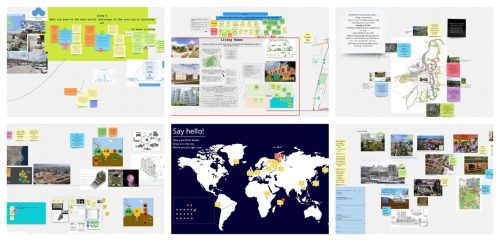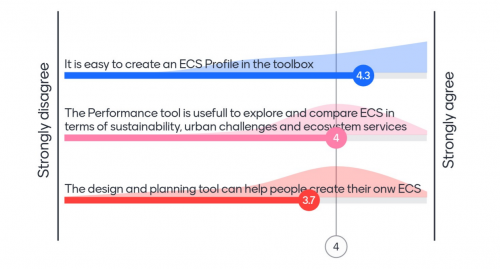After the IRI THESys Edible City Solutions Summer School was cancelled in 2020 due to the ongoing pandemic in Berlin, in 2021 the EdiCitNet team re-designed the schedule so that it would work in a purely digital format – with online lectures and virtual group work. The team embarked on this 2-week learning journey with 30 participants from Asia, Africa, Europe, South and North America, exploring sustainable urban food systems with many talented and experienced experts from among the EdiCitNet project partners – including the Brighton & Hove Food Partnership, Prinzessinnengärten Kollektiv, Association la Recherche en Action, Transition Oststeiermark, the City of Andernach and Bundesverband Gebäudegrün e. V. – BuGG.
The summer school opened with a public webinar entitled “Urban Transformation: Building City Resilience with Edible City Solutions”, led by Dr Ina Säumel, Suhana Reddy and Thomas Wachtel from the EdiCitNet Project. Then the participants were introduced to their challenge for the next two weeks – to develop their very own Edible City Solution, designed to tackle specific urban challenges in a city of their choice.
Throughout the two weeks, the participants were introduced to the four pillars of Edible City Solutions – social, economic, ecological and political – via input sessions with experts from the field. In between the sessions, they worked collectively on their group projects, across time zones and borders, using Miro, Slack, Zoom, Moodle and other online tools. At the halfway point, the Berlin participants of the Edible City Solutions Summer School even got the chance to meet offline as they went on a “Harvest Your City” foraging tour through the city with project partner Mundraub. At the end of each week, in an interactive “Reality Check” session, the groups pitched their creative Edible City concepts to the panel of experts and received practical feedback on the feasibility and potential impact of their concepts.
The final Edible City Solutions included: a citizens’ cooperative turning rice straw residue into biochar in Valencia (Spain) the development of policies and guidelines to support the integration of edible landscapes into the outskirts of Girona (Spain), an edible garden initiative for social housing in Vienna (Austria), the installation of a rooftop farm in an abandoned carpark in Berlin (Germany) and a strategy to strengthen a farm-to-fork initiative in Jeonju (Korea), through the introduction of permaculture practices.

When asked if they enjoyed the summer school the participants said:
“It was fantastic! Great choice of lectures and speakers to teach on the 4 pillars each lesson.”
“I enjoyed these days a lot, thank you! I hope that from here new real edible projects emerge and we can continue sharing knowledge.”
“I loved the “Harvest your City” tour where I learned how biodiverse a city can be. Within just an hour, I became much more sensitive to my surroundings.”
And what did they learn?
“Inspiration comes when different countries and backgrounds work together.”
“The value of transdisciplinarity!”
“Learners from all over the world can cooperate and come up with amazing ideas!”
“I have identified an area in my city that has loads of potential for an ECS. WE will be coming up with a plan to take to the municipality!”
We thank all of the participants and all of the experts who took part, for their dedication and motivation throughout these two inspiring weeks. We look forward to the next edition of the ECS Summer School, set to take place in summer 2022.



